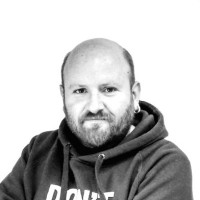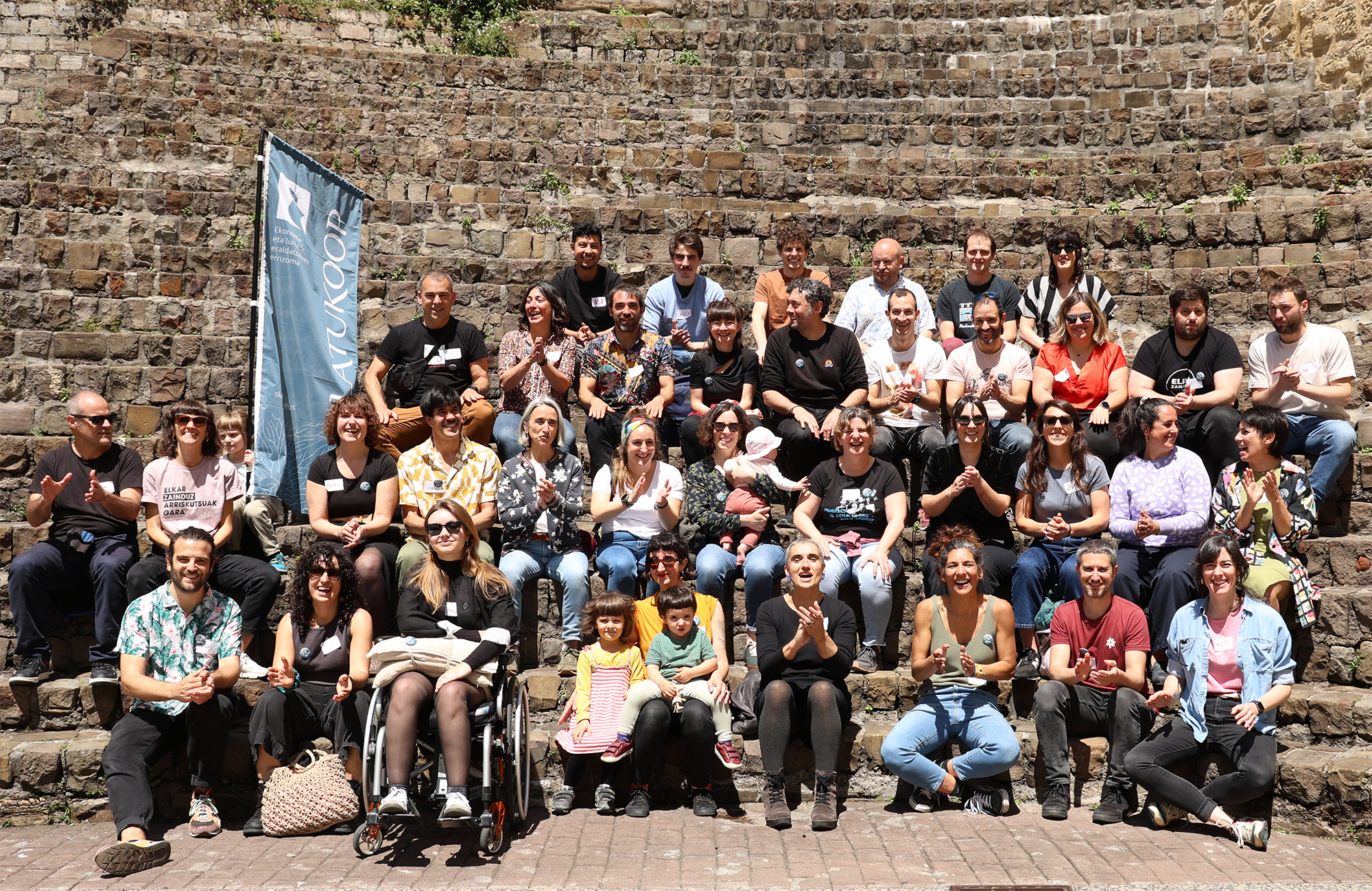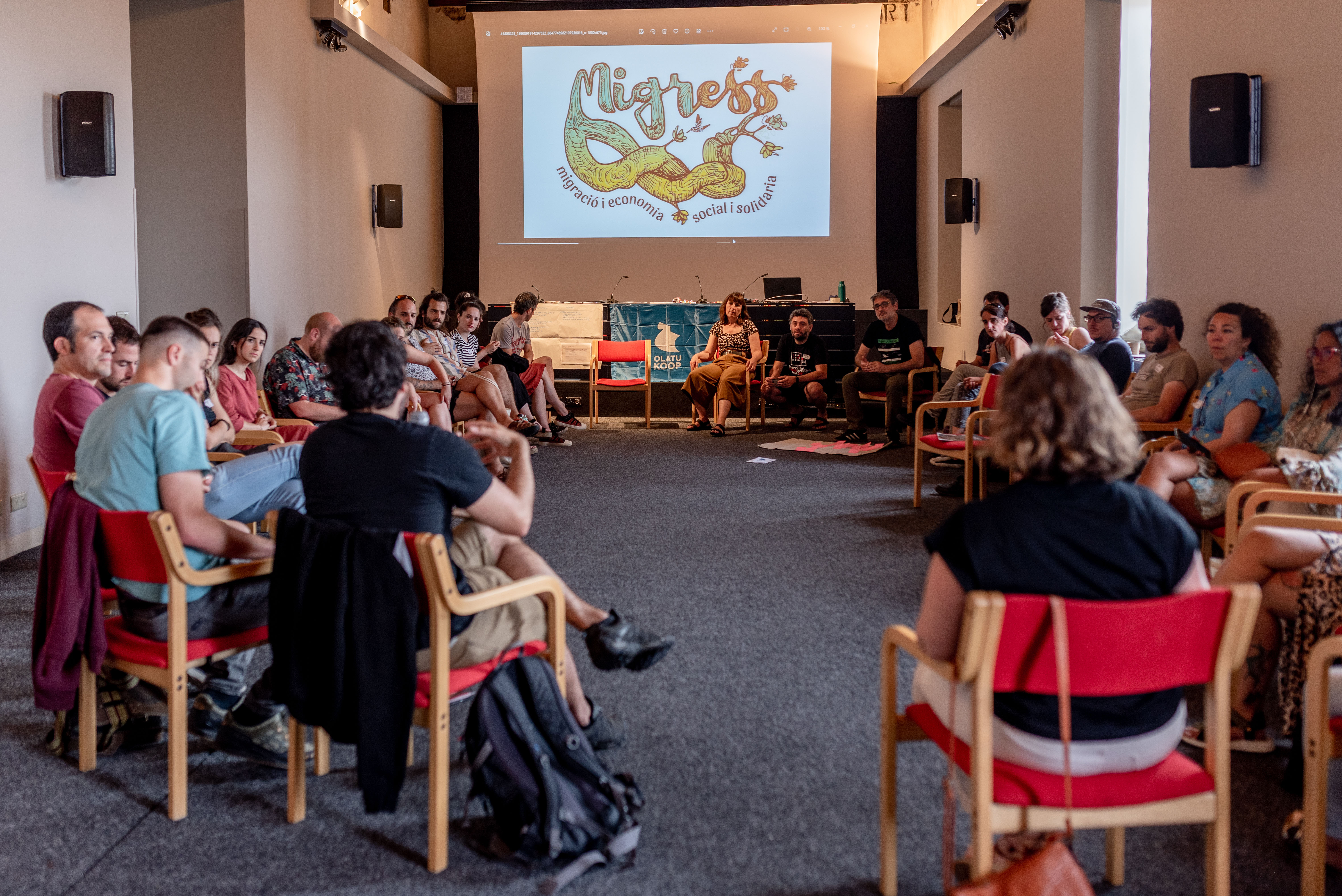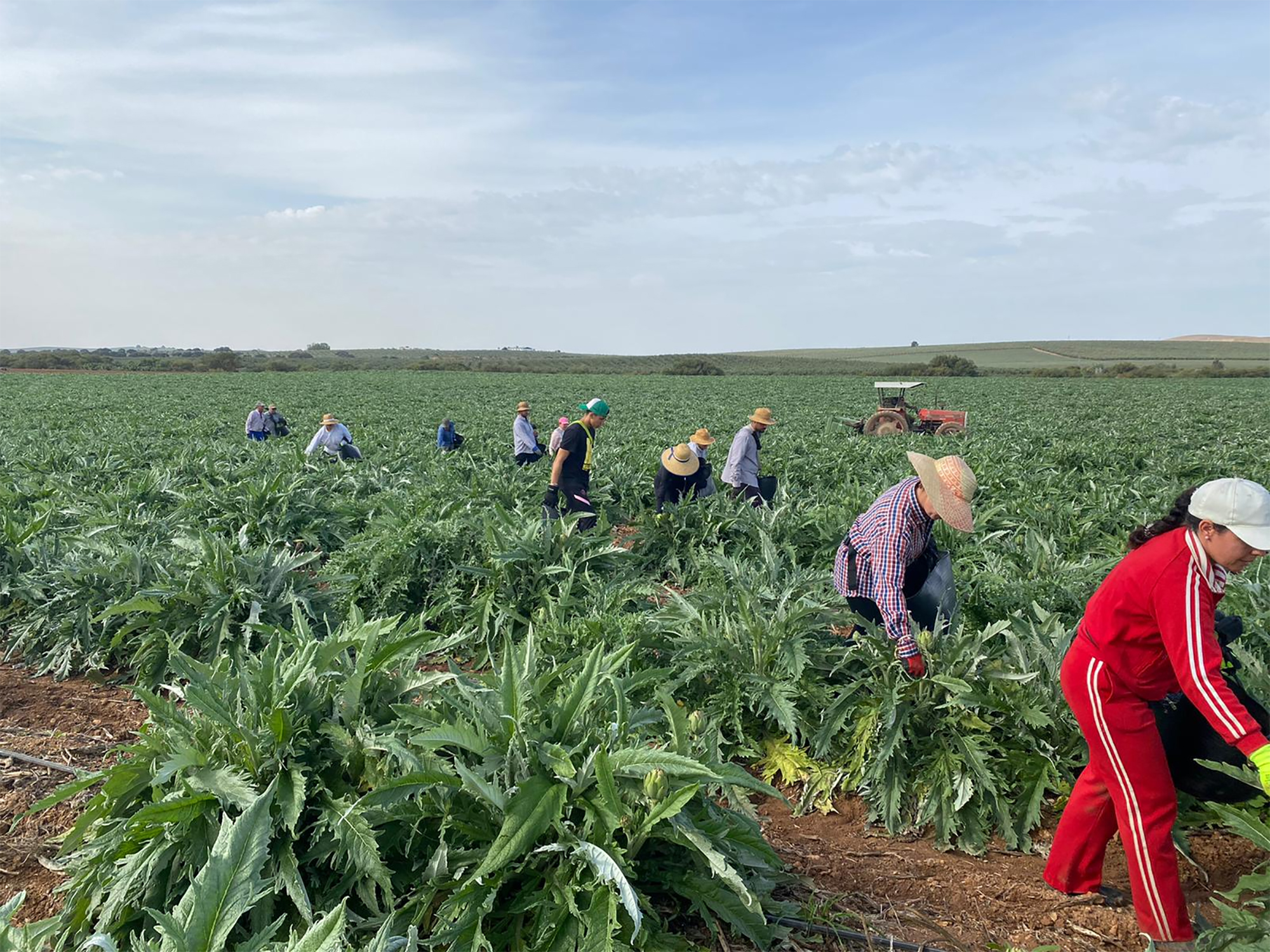Alternative on wheels
- Botxo Riders was born last September with the aim of offering a bicycle delivery service respecting decent working conditions. The first hairstyles were given by Ihering, Imanol and Mikel in a place on the bank, but recently they have decided to move towards the Casco Viejo, in order to save time on travel. We have met the three to talk about the distribution sector and the business model of cooperatives; we have brought lights and shadows to the report.

We are in contact with the members of the Association as soon as we learn that in Bilbao a cooperative has been born that offers bicycle messaging services and has its first headquarters in Deusto. We've been with Ihering, Imanol and Mikel, the latter of Deusto, to get to know the project. As the name of the company announces, a bicycle distribution is carried out in Bilbao. The first two are closely linked to the world of cycling, Ihering and Imanol, and the third, Mikel, has been drawn to the cooperative enterprise model.
The driver of Botxo Riders is Ihering. Get to know the task of making the messenger bike in the big multinationals. He has confessed that he likes the work, but it does not match the business model that is printed through the usual platforms. “I couldn’t do it on the current platforms that offer this work and on my own I decided to open a path,” he explains. On that road he met Imanol and Mikel.
Imanol also comes from the bicycle industry. He has studied the mechanics of this vehicle on his own and likes to fix and recycle bicycles. When he met Ihering, he decided to join the project, “because it’s a cooperative and we do it.” For the time being, it is mainly dedicated to mechanical distribution and maintenance. Botxo Riders was also interested in Mikel, who has just finished a master’s degree in social and solidarity economy: “I was struck by this form of company to deal with today’s digital platforms.” For the time being, he is working on administrative tasks, but the intention is that in the future “everyone and everyone will do everything”, helping each other and “without power relations”. The three members of the jury have stressed the importance of organizing the work between them and making decisions through the assembly.

Small solidarity, great competitiveness
The bicycle delivery model is causing more and more stir. The law adopted by the Government of Spain to amend the contract for false self-employed persons will enter into force in August. Although trade unions have warned that the law will not be enough to deal with the precariousness of workers and will continue to benefit companies, Glovo has already announced that it will set up employers together with other companies to defend their interests, after leaving the Spanish Confederation of Business Associations.
In the meantime, eleven cooperatives have emerged here and there who want to offer this service through decent work, as well as the European federation of bicycle distribution cooperatives, Coop Cycle. They offer technological resources and a support network to anyone who wants to start a business of this kind. Botxo Riderds is one of the partners of the Eramen cooperative, which has spent more time in Vitoria-Gasteiz. The common characteristics of all of them are that the distribution is done exclusively by bicycle, they are cooperatives, the workers are not self-employed and they make decisions by assembly.
The direct reference of Botxo Riders are two cooperatives created by the workers in Barcelona and Madrid in 2017, the result of the struggles against Glovo and Delivero, Mensakas and La Paja respectively. The members of Portability of Vitoria-Gasteiz have also helped them bring this model to Euskal Herria. Furthermore, as we have heard, four other cooperatives in Euskal Herria (Bidasoa, Andoain, Arrasate and Pamplona) are about to be formalised and have the idea of forming a Basque federation. “It is a cooperative system in which companies do not compete with each other, but support each other,” Mikel rounded. “The intention is to create more and more companies that follow this model and join together to deal with big platforms,” says Ihering, trusting that they will have more strength to negotiate with customers and suppliers.
What's the difference with big platforms?
Faced with the loneliness of the distributors who live under the algorithms of the applications that organize their work, the business models we are dealing with propose a collective model. As Imanol explains, “there is only one ‘rider’ who works for a large platform, communicates with the client through an application and has no relationship with the company that in a false way provides a constant workload”. On the contrary, they bet on controlling teamwork and the entire distribution process. “The difference is great: we have direct dealings with customers and suppliers,” he made clear.
They have also explained to us that there is a difference for the client requesting the delivery service. Although they work with private individuals, most customers are believed to be companies, in the food and cosmetic sectors. Among them, there are small and traditional shops that place orders through applications and prefer to phone. “The app is OK, but we differ that we keep that proximity through phone calls,” adds Ihering.
The driver of Botxo Riders believes that little by little the projects they work on are becoming more known. What’s more, he has laughed at us that big platforms advertise them. And that is that people who oppose this model see it “as an alternative” for the “close treatment” they give and for the “social and ecological values” they promote.
They face big platforms with work, but their ideas are very clear. “It is a difficult situation, these platforms are the consequences of the system, which are regularized over time, but the law is slow and responds to certain interests,” explains Mikel. “We believe that it is necessary for people to organize themselves to provide the same service in other conditions,” he stressed.

Transformation of consumption and labour
The increase in online transactions has inevitably led to a change in traditional distribution services. Companies that have done a round business have squeezed the conditions of the workers in search of speed and reduction. Moreover, the 2020 containment and subsequent mobility limits have intensified this process. Imanol believes that we have become accustomed to receiving things at home for online shopping, until it has come to have a need to consume. “The way to consume and work is changing, but it is not yet controlled or regulated. We are in a transitional stage, and it is difficult because everything has to be regulated,” he said.
Ihering is clear that buying and receiving almost anything without moving from home is a “luxury service”. In their opinion, the big platforms have managed to reduce and popularize the service by stepping up working conditions. “Now there are a lot of people who realize that this service has a price and that until now they have not paid it, because with the money of the distributors someone is staying.”
According to Mikel, the cooperative is today the model that best reflects that a company is that of workers. According to him, “it promotes equality between workers because they organize without hierarchy”. He also wanted to add that there are cooperatives that have been ranking as they have been growing, but that their goal is “to maintain this egalitarian model, relating to the local economy and participating in the community”.
“If you can do it in Bilbao, this can be done anywhere”
With the voids of the bidegorris network, the steep slopes of some neighborhoods and the rainy time of the ‘Botxo’, it doesn’t seem easy to work every day by bike. In contrast to our beliefs, the three cyclists have explained to us that in practice they are having fewer problems than we had thought. In the opinion of Imanol, Bilbao is not a heavy traffic city, and in addition, the speed of the vehicles is limited to 30 kilometres per hour. “It’s not a dangerous, chaotic city, and in the middle there are no big slopes,” he summarizes. Yes, he has reminded us of the importance of having the right work clothes to cope with bad weather. In Bilbao they have found a tariff system that takes into account the effort involved in getting to places by bicycle and, despite the difficulties, Ihering has told us that they work well. “If you can do it in Bilbao, this can be done anywhere,” he concluded.

Gure lurraldeetan eta bizitzetan sortzen diren behar, desio eta ekimenen inguruan gero eta gehiago entzuten dugu harreman eta proiektu publiko-komunitarioak landu beharraz, eta pozgarria da benetan, merkaturik gabeko gizarte antolaketarako ezinbesteko eredua baita. Baina... [+]
I write these lines the day after the elections to the European Parliament, the dark times, the triumph of the Reactionary International in the elections to the European Parliament. It was already in advance and it is the confirmation of the conservative phase we live in, but it... [+]
One of the major projects developed by Olatukoop with other actors is KoopFabrika, a programme created in 2017 with the aim of boosting social entrepreneurship and which is currently underway.
Initially, the first idea was that the cooperatives and agents that gathered around... [+]
Bizitegi molde kooperatiboak zabalduz doaz Ipar Euskal Herrian. Euskal Hirigune Elkargoko azken biltzar nagusian Nicole Etxamendi, Itsasuko hautetsiak "Bizi lagun" kooperatibak kontutan hartu behar zirela eta alternatiba ona direla azpimarratu zuen.
When I am asked about cooperativism and the transformative economy through the cooperative Talaios and Olatukoop, I say that it has been an opportunity to begin the path to emancipation through work and collective action. And on that road it has been very important to work on... [+]
At the beginning of July we learned that the pastries and sweets factory De Paula will be closed in our town, which is essential for many workers’ houses. They say that pastry shops and, of course, retired workers have every right to rest, but we are going to lose an important... [+]
We insist that we are no longer a partnership or a collective. We went, yeah. We didn't have a collective way of being activist transmaribibollos (no, we're not very supportive of individual activism). We leverage the partnership to bill.
But in 2020, we went from being... [+]



















